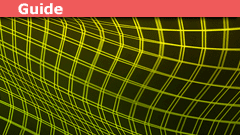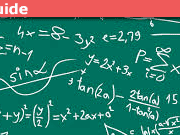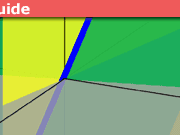How to Self Study Analysis: Intro to Analysis
This is a sequel to my posts on self-studying mathematics. I have already given a very detailed road map on how to study high school mathematics and calculus. In this post and the next ones, I will try to give a very detailed road map on how to self-study analysis to reach a high level.
In planning this road map, I have chosen a very deep and grounded path. In my road map, you will not reach abstract concepts quickly. I have chosen a path that makes the abstract and advanced concepts you will meet later on way more intuitive and acceptable. So while it is definitely possible to study topological spaces fresh out of calculus (and I have known some people who have done exactly this), I avoid such approaches in favor of a more long-winded but more grounded path.
First I will try to detail how to get started in analysis. The prerequisites you need to have should be clear: Single-variable calculus is a necessary condition. I will not assume anything more than single-variable calculus. I do assume that in single-variable calculus, you spent some time (doesn’t need to be a lot) on epsilon-delta formulations. The more experience you have with this crucial tool, the easier you will have.
Table of Contents
Proofs
First is important to be well-acquainted with proofs. For this, you will need to go through a proof book. I’m not a fan of proof books, I consider them a necessary evil. When doing proof books, you will not learn how to do proofs or how to write them down adequately. You will however learn the basic vocabulary and grammar of proofs. You will learn the language in which proofs are written (logic and set theory), you will learn how to construct easy proofs in set theory and logic, and you will learn the major proof techniques. After you have completed a proof book, you will be able to read many different proofs more easily, and you will recognize the different symbols and techniques. Do NOT expect to be able to write proofs fluently, that is not the purpose of a proof book.
As a recommendation, I give Velleman’s “How to prove it: a structured approach” http://www.amazon.com/How-Prove-It-Structured-Approach/dp/0521675995
You will learn the following topics:
- Basic logic
- Basic set theory
- Proof techniques
- Relations and functions
- Infinite sets
A nice (and free!!) alternative is the book of proof, available here http://www.people.vcu.edu/~rhammack/BookOfProof/ This covers the same topics.
Single-variable analysis
Once you have become somewhat proficient at handling proofs, it is time to dive into analysis. The analysis is quite a difficult topic for most newcomers, but rest assured that you’ll do fine given enough practice and thinking. Don’t underestimate an analysis book. An analysis book (like most math books really) is not something you can read before sleep. It is something you must read actively. And if you read it actively, you will go very very slow. Don’t think you’ll do more than several pages a day. Sometimes you won’t even get further than one page! This might be discouraging at first, but it gets better over time.
As the first analysis book, I recommend the excellent text by Bloch: “The real numbers and real analysis”. This is a very rigorous book, but it contains a lot of goodies. The standard topics you will encounter in Bloch are:
- Axioms for real numbers
- Construction of the real numbers
- Limits
- Continuity and uniform continuity
- Differentiation
- Riemann integration
- Sequences and series
- Series of functions
This might look like an ordinary course in calculus, and indeed the topics covered in Bloch tend to be those of an ordinary calculus course, except that everything is proven rigorously. Nothing is left unproven. Some nice goodies that can be found in Bloch and not in most other analysis books:
- Rigorous definition and construction of N, Z, Q, and R.
- Recursion theorem
- A rigorous definition of decimal expansions
- Several equivalent forms of completeness (including a proof that completeness of R is equivalent to the intermediate value theorem)
- A rigorous definition of area and a proof that the Riemann integral does measure the area. Same for lengths of curves.
- A complete characterization of Riemann integrable functions (Lebesgue’s theorem)
- A proof that pi and e are irrational
- Construction of a continuous, but nowhere differentiable function
- Much intuition and historical notes
An often-cited alternative to learning analysis is Rudin. But I consider that book to be pretty badly written (especially the multivariable part and the Lebesgue integration part). Rudin also tends to ignore any kind of intuition. I would not recommend Rudin to anybody.
Multi-variable analysis
After we have rigorized single-variable calculus, it is time to rigorize multi-variable analysis. The multi-variable analysis is deeply tied to linear algebra, so you will have to know linear algebra to understand most multi-variable analysis results. Luckily, there is an excellent book that teaches both linear algebra and analysis. The book is perfectly suitable for somebody who hasn’t taken a multivariable calculus class before. The book in question is Hubbard and Hubbard “Vector calculus, linear algebra, and differential forms: a unified approach”. It can be found here: http://matrixeditions.com/5thUnifiedApproach.html Note that the later editions are significantly better than the earlier ones, so try to get a later edition if possible. Also, note that the proofs of most of the big theorems are in the appendix. If you’re learning analysis, then this appendix is of course not something you should ignore! Some acquaintance with basic physics is helpful, but not necessary.
You will learn
- Vectors in R^n
- Matrices and matrix computations
- Limits and continuity in R^n
- Differentiation in multiple dimensions
- Vector spaces
- Linear transformations
- Eigenvectors and eigenvalues
- Newton’s algorithm
- Implicit and inverse function theorems
- Manifolds and tangent spaces
- Taylor polynomials in R^n
- Finding maxima/minima, and Lagrange multipliers
- Determinants
- Integration in multiple dimensions
- Fubini’s theorem
- Change of variables theorem
- Introduction to Lebesgue integrals
- Curvature of manifolds
- Differential forms on manifolds
- Exterior derivatives and their relation with div, grad, and curl
- The general Stokes theorem
Some reasons why I like this book over any other book
- An integrated approach to both analysis and linear algebra (note that even if you know linear algebra already, this book is still good!)
- Many cool nonstandard topics like the central limit theorem, basic differential geometry, and electromagnetism.
- Very intuitive explanations of differential forms and their operations. They are motivated thoroughly unlike other books (Rudin).
- A very nonstandard definition of the exterior derivative makes it much easier to grasp its meaning. The usual definition is proven later.
Another nice book you might want to look at is Spivak’s “Calculus on manifolds”. http://www.amazon.com/Calculus-Manifolds-Approach-Classical-Theorems/dp/0805390219/ It contains a lot of good problems (better problems than Hubbard), but the exposition of Hubbard is a lot better. Using both Spivak and Hubbard might be a nice idea.
More on differential forms
Differential forms are extremely important in mathematics and are very often ignored in undergraduate mathematics. Many students find them troubling at first. While Hubbard gives a very nice explanation of them, I feel that an understanding of differential forms would not be complete without some knowledge of Clifford algebras (also known as geometric algebra) and infinitesimal calculus. The basics of infinitesimal calculus can be learned from Keisler’s free book (see my self-study post about calculus). Geometric algebra is treated quite well in MacDonald’s “Linear and geometric algebra” http://www.amazon.com/Linear-Geometric-Algebra-Alan-Macdonald/dp/1453854932 (Depending on your knowledge of linear algebra, you can skip a lot of this book, only part II is important here). This book will also teach cool stuff like quaternions, and what physicists really mean when they talk about a pseudovector (but probably not realize it).
If you really like the approach of geometric algebra (and face it, who doesn’t?), you can follow this up with MacDonald’s “Vector and geometric calculus”, which treats multivariable analysis with the language of geometric algebra. This is optional though. http://www.amazon.com/Vector-Geometric-Calculus-Alan-Macdonald/dp/1480132454
Conclusion
After reading all this stuff, you have rigorized all of calculus. But don’t think analysis ends here. No way: your journey through analysis is just beginning. The analysis is way more than just rigorous calculus. In my next posts, I will tell you how to get to the good stuff.
Advanced education and experience with mathematics








As a followup to my previous post, a while back I reached out to Ethan Bloch about his book and he had this to say (super helpful guy btw):> "As for Dedekind Cuts, that is indeed a very heavy duty topic, and is more > tedious and technical than a lot of other parts of the book. In truth, when > I teach our standard real analysis course, I start with Chapter 2, skipping > the Dedekind Cuts entirely. The only reason to do Dedekind Cuts is if > someone has a particular interest in that subject, or if someone has > already seen some real analysis, or the like. The reason the Dedekind Cuts > are at the start of the book is because logically that is where they > belong, though pedagogically it isn’t the most user-friendly place to start."He also suggested that students who find proofs challenging at first will often benefit from doing an intro abstract algebra course prior to diving into real analysis. As luck would have it [USER=205308]@micromass[/USER] has an excellent guide for that: https://www.physicsforums.com/insights/self-study-algebra-part-ii-abstract-algebra
For anyone like me who is finding Bloch to be a tough first book on analysis, I'd like to suggest "Understanding Analysis" by Abbott as a supplement. So far, I'm finding it to be more approachable, especially since I'm not able to dedicate time every day to work through it.https://www.amazon.com/Understanding-Analysis-Stephen-Abbott/dp/1493927116
What got me into analysis started with the concept of "sigma algebras". Once I grokked that, it was all clear sailing.
is there at least one more or less famous mathematician in 20 century who had self- studied analysis sitting at his home and did not graduate university?
Thanks for taking your time to write a reply, I appreciate that! I already knew of Jänich's great text but not of Gamelin and Greene's book. I'll be sure to check out this one too.
Another book which is excellent for learning general topology is Gamelin and Greene's Introduction to Topology 2e. It has excellent exercises, is slim with few wasted words, and at the same time manages to not skimp on needed explanation at some of the common sticking points in learning topology. It would be a good companion to Lee's books on manifolds.Also, Klaus Jänich's Topology is an excellent supplement to any path of learning topology. Jänich doesn't have a full complement of exercises, and doesn't always have the precise pedagogy other texts have. However, the book is full of excellent intuitive explanations and diagrams.Learning topology well will help a lot with your later explorations of analysis, as well. Even many proofs in basic real analysis are more elegant and easier to understand when phrased in topological terms rather than in epsilon-delta form.
Thanks for your help! I initially thought Lee's book already required point-set topology but that was Introduction to differentiable manifolds. I'll take a look at this book in the university library and I'll be sure to PM you if I need more information. Thanks again!
In your case, it seems that Lee's "Introduction to topological manifolds is ideal". Here's why1) The prerequisites needed are a good experience with set theory proofs and metric spaces. You seem to have this, so you meet all the prereqs. I do advise going through the appendix first.2) Despite it saying "graduate texts in mathematics", this is actually one of the more intuitive and easier texts on the subject. I personally think it's perfect for a first encounter. You might want to go through another book later though, since it doesn't cover everything you need to know.3) It is especially made for somebody interested in differential geometry and it focuses a lot on manifolds.https://www.amazon.com/Introduction-Topological-Manifolds-Graduate-Mathematics/dp/1441979395Feel free to PM me if you want more help.
Hello micromass and thank your for this great Insights!I have some familiarity with Real Analysis from Abbott but the problems were a bit tough for me at the time. I'm going through Tao's Analysis books with a friend of mine right now and he's giving me additional exercises since he already covered the subject.My question is: I'm currently self-learning Algebra (with Artin and Pinter) and Analysis, do you think I have the proper prerequisites to start learning General Topology? I have the whole summer to work on mathematics considering I'll start university (as a math major this time) in September. It is not exactly my first encounter with topology, but I never covered compactness or connectedness for instance. I have some familiarity with metric spaces.What book would you recommend considering my main interest lies in differential geometry and mathematical physics? Most differential topology books I know assume a course in point-set topology.Thanks for taking your time to help me!
[QUOTE=”houlahound, post: 5470198, member: 551046″]dang it, I have signed myself up for a self study on analysis. I just got drawn into slowly but surely by reading the insights and looking at the recommended texts.
I need to get material on the language and use of sets, for some reason sets were a big thing in high school but by the time I got into first year high school they had been discarded as a thing to teach students.
any theories why educators felt sets were so important I think until the 70’s then fell off the face of the high school curriculum by the late 70’s/early 80’s.
so ya, I am not familiar with the language and from my scan of the insight, analysis is mainly written in the language of sets??[/QUOTE]
Yes, I’m afraid the notions of sets are absolutely crucial to everything mathematical. I recommend Velleman’s “how to prove it” to get acquainted with sets. Although any proof book will contain enough material on it.
dang it, I have signed myself up for a self study on analysis. I just got drawn into slowly but surely by reading the insights and looking at the recommended texts.
I need to get material on the language and use of sets, for some reason sets were a big thing in high school but by the time I got into first year high school they had been discarded as a thing to teach students.
any theories why educators felt sets were so important I think until the 70’s then fell off the face of the high school curriculum by the late 70’s/early 80’s.
so ya, I am not familiar with the language and from my scan of the insight, analysis is mainly written in the language of sets??
[QUOTE=”Saph, post: 5411684, member: 582117″]
1) What are the most important theorems that one must remember and master in analysis, I mean which theorems will be used the most in later courses like functional analysis or differential geometry?
[/QUOTE]
Everything. I’m sorry, but that’s the way it is. Single variable calculus is so immensely important, every theorem you encounter is something you should deeply understand and know. I can’t say anything is less important than something else, because that would be wrong.
Most important are the techniques though. Making an epsilon-delta proof. Proving a sequence exist and converges. Proving a continuous function with one positive value has an entire open interval of positive values. Etc. Stuff like that are stuff you are expected to do very well. That you forgot a theorem is not so bad, you can always look it back up. But you should be able to handle these techniques cold.
[QUOTE]
2) I am currently self studying analysis using two different books, Intro to RA by Bartle and Sherbert 3rd ed. and Understanding Analysis by Abbot, how do you see these books, and do you recommend me to solve all the problems in these books? if not, which problems shall I do ?
[/QUOTE]
Yes, you should solve all problems. Real analysis is so fundamentally important to later courses that you should take all the practice you can get. Like I said, the techniques are most important, and you only learn them by doing problems. Bartle is a really nice book and Abbott is cool too. I enjoy all of Bartle’s books very much. You won’t got wrong with them.
Don’t take this intro analysis lightly. I know for most people this isn’t really fun. It’s just all calculus, but with annoying proofs. But spend as much time as you need on this stage. Don’t rush it. You don’t want a bad foundation in this kind of analysis! Every kind of analysis (functional analysis, complex analysis, global analysis) depends on knowing this very very well.
For multivariable calculus, things change though. The differentiation part is very important: partial and complete derivatives, implicit and inverse function theorems, etc. The integration part is far less important since Lebesgue integrals generalize it much more neatly. In the end, you’ll use the Lebesgue integral everywhere and you will never care about the Riemann integral anymore. Differential forms on the other hand, are crucial, even though they are very underappreciated in the undergrad curriculum (which I think is a really awful mistake).
[QUOTE=”Dembadon, post: 5409052, member: 184760″]Gotcha. I will definitely have to become more comfortable with linear algebra. The only thing I’ve done apart from a standard undergraduate was in my digital signal processing course where we learned about Minkowski spaces. Our first HW assignment had me stumped on the following problem:
For vector space [itex]l^p(mathbb{Z})[/itex], show for any [itex]p in [1,infty)[/itex] the vectors in [itex]mathbb{C(mathbb{Z})}[/itex] with finite [itex]l^p(mathbb{Z})[/itex] norm form a vector space.
He had talk about Minkowski’s inequality during the first lecture and I didn’t even think to use it! o:)
Thank you for responding and I will get to work right away. =)[/QUOTE]
Yeah, those are standard first problems. The Minkowski inequality is proven in Kreyszig. Another book which isn’t really functional analysis but contains a lot of relations with the subject is Carothers real analysis book. It’s very well written.
[QUOTE=”micromass, post: 5409043, member: 205308″]I will post about functional analysis soon. But if you’re comfortable with single-variable analysis (mainly continuity and epsilon-delta stuff) and very comfortable with linear algebra (the more the better, but definitely abstract vector spaces, linear maps, diagonalization, spectral theorem of symmetric matrices, dual spaces), then you can start functional analysis. A very very good book is Kreyszig’s functional analysis book. Any other functional analysis book requires quite a bit more analysis including measure theory. But I would start with Kreyszig and move to a more advanced book later.[/QUOTE]
Gotcha. I will definitely have to become more comfortable with linear algebra. The only thing I’ve done apart from a standard undergraduate course was in my digital signal processing course where we learned about Minkowski spaces. Our first HW assignment had me stumped on the following problem:
For vector space [itex]l^p(mathbb{Z})[/itex], show for any [itex]p in [1,infty)[/itex] the vectors in [itex]mathbb{C(mathbb{Z})}[/itex] with finite [itex]l^p(mathbb{Z})[/itex] norm form a vector space.
He had talked about Minkowski’s inequality during the first lecture and I didn’t even think to use it! o:)
Thank you for responding and I will get to work right away. =)
[QUOTE=”Dembadon, post: 5409024, member: 184760″]Hi Micro! Thank you for the advice!
Where would you say functional analysis fits? I don’t believe I am ready right now, but I’d like to know in what direction I should be going after completing single-variable analysis.[/QUOTE]
I will post about functional analysis soon. But if you’re comfortable with single-variable analysis (mainly continuity and epsilon-delta stuff) and very comfortable with linear algebra (the more the better, but definitely abstract vector spaces, linear maps, diagonalization, spectral theorem of symmetric matrices, dual spaces), then you can start functional analysis. A very very good book is Kreyszig’s functional analysis book. Any other functional analysis book requires quite a bit more analysis including measure theory. But I would start with Kreyszig and move to a more advanced book later.
[QUOTE=”Borg, post: 5402392, member: 185214″]Perhaps I am confusing them a bit but I still need to improve the mathematical side.[/QUOTE]
So it is officially 5000 1 in confusions; you have already cleared up around 5000 of mine in the Computers forum to this one of yours ;).
[QUOTE=”WWGD, post: 5402323, member: 69719″]I wonder if you are mixing data analytics with Mathematical Analysis? Hope I am not saying something dumb. And interesting that in Spanish, TODO, without spaces means everything. Hope your list does not include _everything_ and that your load is lighter than that :).[/QUOTE]
Perhaps I am confusing them a bit but I still need to improve the mathematical side.
[QUOTE=”Borg, post: 5401815, member: 185214″]Thanks micromass. I have a large, related TODO list which is why I haven’t gotten around to asking about the analytics yet. I think that it’s going to be another six months before I’ll have the time to start. This is where I plan to put it to work though – [URL]https://d3js.org/[/URL][/QUOTE]
I wonder if you are mixing data analytics with Mathematical Analysis? Hope I am not saying something dumb. And interesting that in Spanish, TODO, without spaces means everything. Hope your list does not include _everything_ and that your load is lighter than that :).
[QUOTE=”micromass, post: 5401537, member: 205308″]Feel free to PM me for any further information! Or post something in this thread.[/QUOTE]
Thanks micromass. I have a large, related TODO list which is why I haven’t gotten around to asking about the analytics yet. I think that it’s going to be another six months before I’ll have the time to start. This is where I plan to put it to work though – [URL]https://d3js.org/[/URL]
[QUOTE=”Borg, post: 5401489, member: 185214″]Thanks for this micromass. I’ve been meaning to post a question asking for exactly this. :smile:[/QUOTE]
Feel free to PM me for any further information! Or post something in this thread.
Thanks for this micromass. I’ve been meaning to post a question asking for exactly this. :smile:
Nice information thanks for sharing
Thank you for your post, very helpful, looking forward to the next part, but I wish that there was more elaboration on why one should study real analysis, and the importance of real analysis on later courses of mathematics, also more elaboration on the struggle of self learner and how to overcome them, with examples from your experience, since you have studied many courses by your self.I have some questions for you,1) What are the most important theorems that one must remember and master in analysis, I mean which theorems will be used the most in later courses like functional analysis or differential geometry?2) I am currently self studying analysis using two different books, Intro to RA by Bartle and Sherbert 3rd ed. and Understanding Analysis by Abbot, how do you see these books, and do you recommend me to solve all the problems in these books? if not, which problems shall I do ?Thank you again dear Micromass for your very helpful contributions to the forums.
Hi Micro! Thank you for the advice!Where would you say functional analysis fits? I don't believe I am ready right now, but I'd like to know in what direction I should be going after completing single-variable analysis.
Thank you again Micromass ! I'm not really sure how much time it will take me to complete your guides but I'll try to put as much efforts as needed. Very helpful!
Thanks MM! Looking forward to the next in the series :)